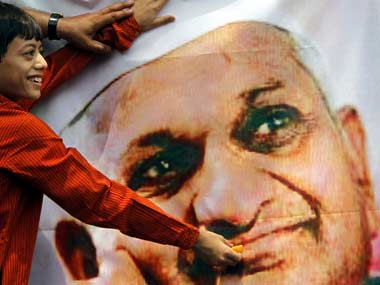By Vivek H Dehejia A recent article in Firstpost rightly pointed out the Indian government’s hypocrisy in criticising the Anna Hazare and Baba Ramdev movements for usurping the legitimate role of Parliament in our democracy even while paying heed to an unelected group forming the National Advisory Council (NAC). This criticism is legitimate and important to articulate. But it raises the further question: what is the correct dividing line between officials elected directly by the public and those unelected experts appointed by our elected representatives? This question arises in every democracy, each of which finds a different cut-off.  The reason that even the most democratic of polities must have some unelected technocrats is fairly obvious, but deserves to be stated. Matters that are too technical to be decided by an elected politician who may have, at best, some general knowledge of a subject, or is prone to becoming excessively politicised, are best handled by appointed officials, who must be accountable, but stand at arm’s length from political interference. The classic example is a central banker. He or she requires technical knowledge of monetary economics and policy, and must be immune from partisan political pressure, for instance, by loosening monetary policy in the lead-up to an election. That is why most democratic polities, including India, give a fair amount of leeway to their central bank governors. Research conducted originally by Harvard University economics professor Robert Barro and since confirmed in various countries and time periods shows that independent central bankers deliver, on average, lower inflation than those who are under direct political control. But what about an advisory body such as the NAC? Certainly, there is nothing unconstitutional in its existence, but neither is it sanctioned by the Constitution: it exists in an extra-constitutional shadowland created by the executive branch of government. So too, for that matter, does the Planning Commission exist in this space, again a creature of the executive. Most mature democracies do have advisory councils such as the NAC that opine on matters of economic or social policy, and are appointed by the government of the the day. The Council of Economic Advisors (CEA) in the United States is one prominent example. There are two important differences, however, which make an American-style CEA more legitimate than an Indian-style NAC. First, members of the CEA, while nominated by the President, must be confirmed by the US Senate, similar to other high-ranking government appointments such as members of the Cabinet. They cannot simply be handpicked by the government and appointed without consultation, as are members of our NAC. Second, and equally important, the CEA’s role is purely to advise the President, who then proposes legislation to the Congress taking the CEA’s advice as one input. Crucially, they are not involved in lobbying on matters of legislation, nor are they involved in drafting legislation. NAC is involved in both of these. The higher level of political and policy-making involvement of the NAC in the activities of the government, therefore, should necessitate greater stringency in the selection and vetting of candidates. While setting up a strict US-style confirmation process may be neither possible nor desirable in India, an alternative mechanism, such as submitting names of members for selection to a Cabinet or Parliamentary committee, in hearings open to the public, would be a good start. The executive may retain the final say, but such a committee could at the very least expose a range of views on the suitability of particular candidates, and if one or the other is an obvious political hack, this would be rightly and widely publicised. It would make it more difficult, politically, for the executive to cherry-pick its cronies by stealth, and at the stroke of a pen, as may happen now. And while we are contemplating the boundary between elected and appointed officials, let us also consider that, unique amongst Westminster-style Parliamentary democracies, we have a Prime Minister who sits in the Upper House. At one level, this may be rationalised by arguing that members of our Rajya Sabha, unlike, say, the British House of Lords or the Canadian Senate, are elected by the state assemblies, whereas those in the UK or Canada are appointed by the government of the day. It is for this reason, the tinge of a lack of democratic legitimacy, that members of the Upper House in those countries are barred by convention from serving as Prime Minister, although they may sit in the Cabinet. In India, members of the Rajya Sabha are elected, albeit indirectly, and therefore constitutional jurisprudence may hold that there is no bar in a PM coming from the upper chamber. Politically, the argument is not so clear-cut. In practice, being elected to the Rajya Sabha really boils down to being put forward for election in a state in which your party holds a majority, and you are almost certain to win by default. That is why, although not written in our Constitution, we too shared an unwritten convention that the PM should sit in the Lok Sabha, who thereby gains legitimacy by being directly elected by voters in a particular constituency. We may have had such a convention before the advent of the UPA government, but that has clearly gone out of the window. Perhaps that is something else those critical of the role of civil society in our current political configuration may wish to give heed to. Vivek H. Dehejia is an economics professor at Carleton University in Ottawa, Canada, and a Mumbai-based commentator on Indian economic and political affairs. You may follow him on Twitter @vdehejia
Every democracy needs unelected experts who will advice and offer options. The unelected advisors acquire legitimacy through a process of public vetting. The National Advisory Council of Sonia Gandhi’s is not quite there because it is a hand-picked group with no accountability
Advertisement
End of Article
Written by FP Archives
see more


)
)
)
)
)
)
)
)
)



